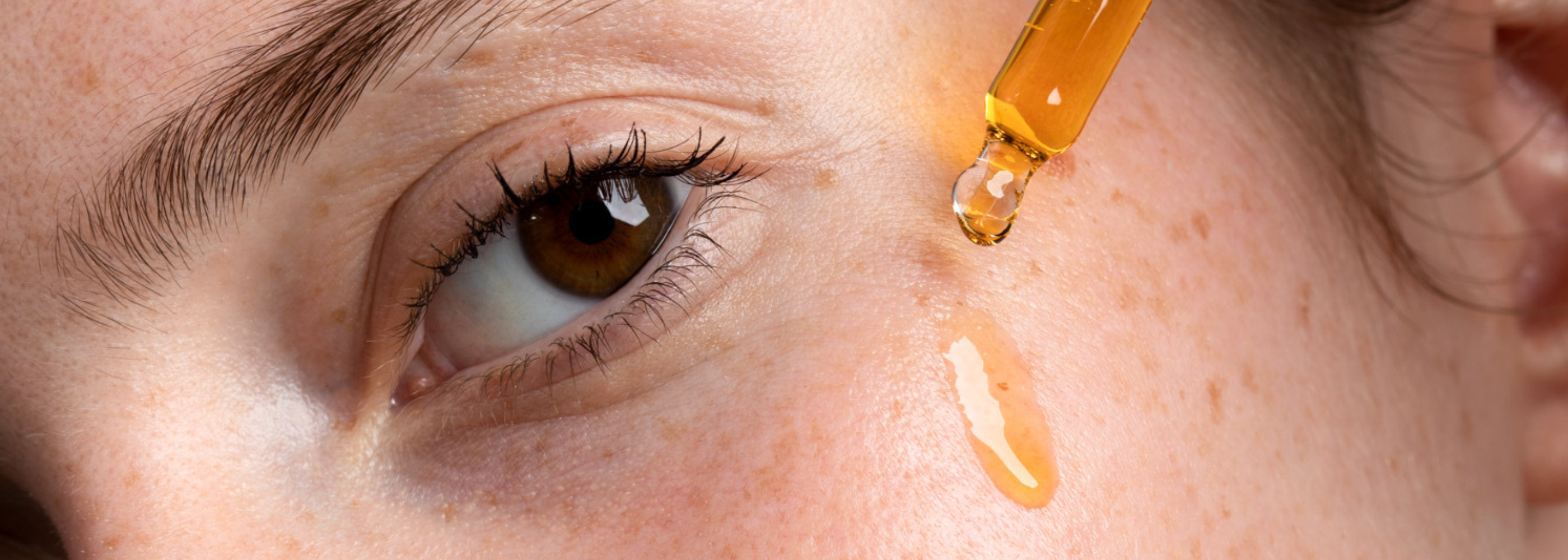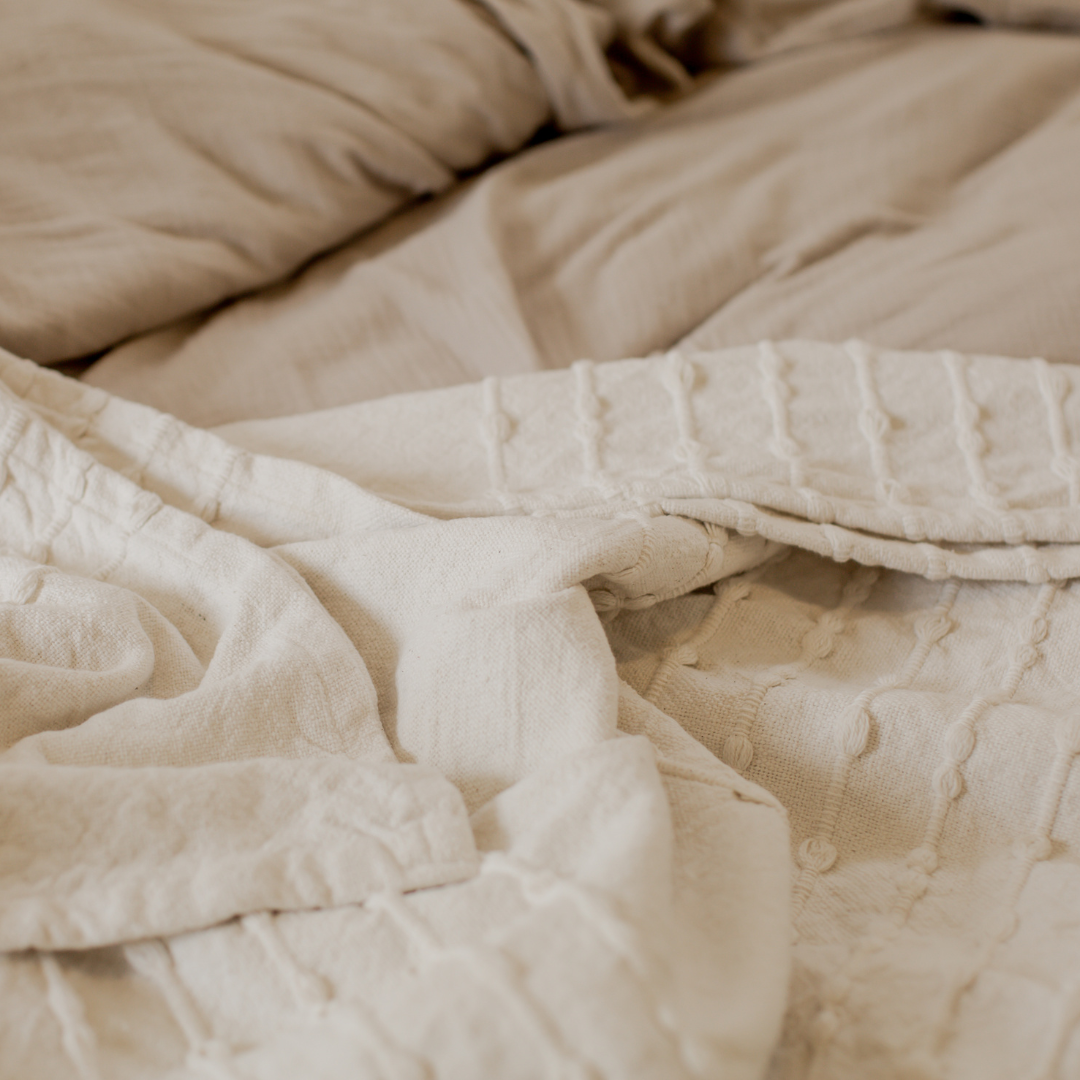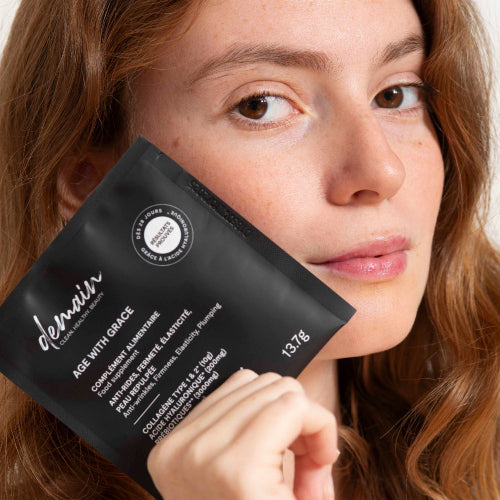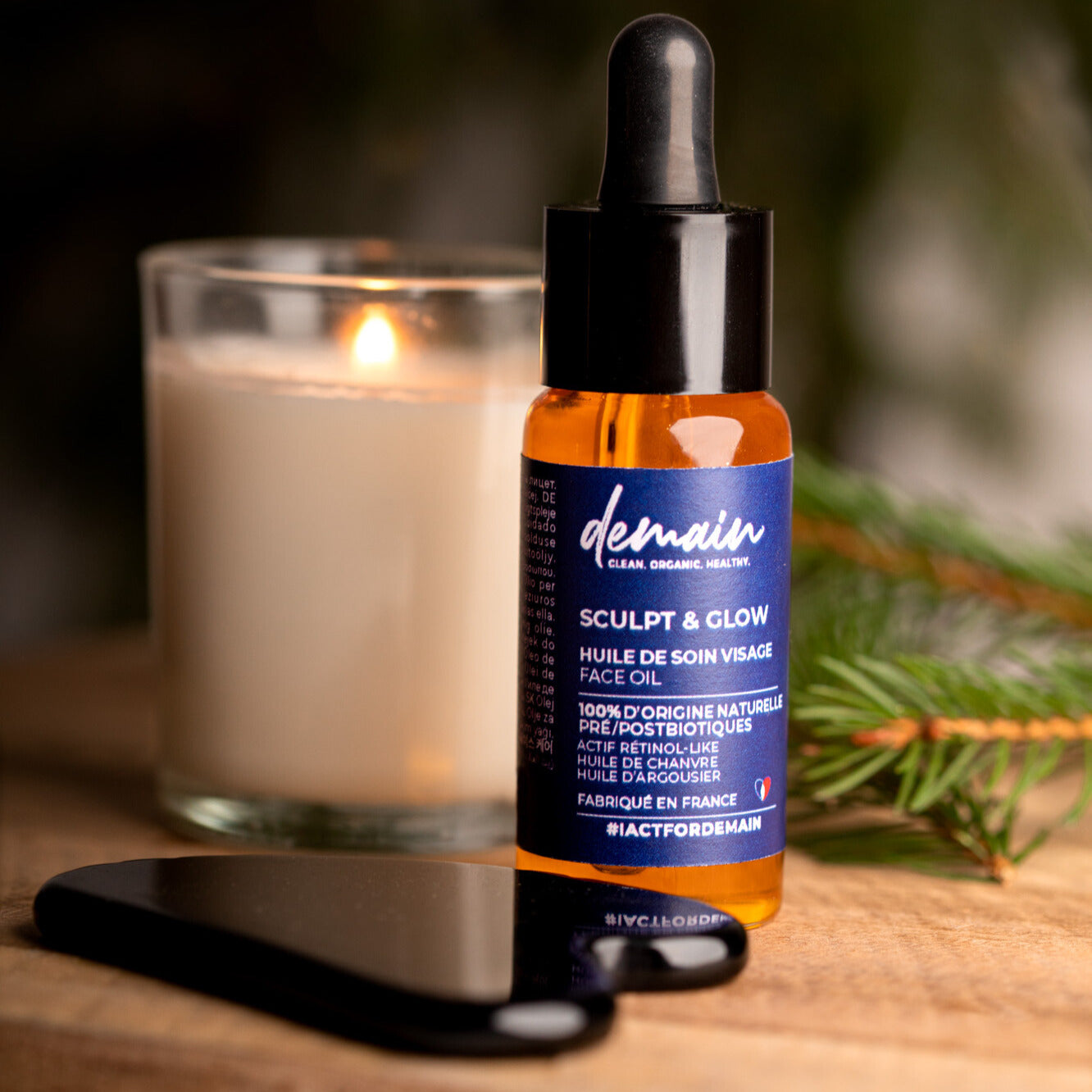Intense heat can disrupt sleep and cause insomnia. When the mercury climbs above 30 degrees, falling asleep becomes a challenge. What to do when a heatwave makes your nights unbearable? Discover a series of tips for sleeping well despite the heat. From the best position to adopt, to how to cool your body and combat the heat in your bedroom, you will find tips to cope with these too hot nights.
Understanding the impact of heat on sleep
To better understand the impact of heat on sleep, we must first know the role of thermoregulation in our body. This biological function allows us to maintain a constant internal temperature, regardless of the external environment. When it is hot, our body will try to cool itself down, particularly by sweating . However, if the ambient air is too hot, this cooling mechanism is less effective, which can lead to overheating of the body.
This has a direct impact on the quality of sleep . In fact, to promote falling asleep, the body temperature must drop slightly. In a room that is too warm, this process is disrupted, which can cause difficulty falling asleep, restless sleep and frequent awakenings.
Consequences of heat on sleep :
- Difficulty falling asleep
- Restless sleep
- Frequent awakenings
This is why it is crucial to find ways to cool down to promote restful sleep, especially during periods of heatwave.
Insomnia: the role of heatwaves
Heatwaves can worsen insomnia disorders. High temperatures impair body thermoregulation, a key factor for healthy sleep. During heatwaves , our body temperature can remain high, even at night, hindering the process of falling asleep. In fact, our body needs to lose one degree to fall asleep easily.
It is also observed that high night temperatures reduce the duration and quality of sleep . They can increase nighttime awakenings and decrease deep sleep, which is essential for the body's regeneration.
On the other hand, prolonged exposure to excessive heat can cause fatigue and drowsiness during the day, impacting our cognitive performance. The elderly and those with chronic diseases are particularly vulnerable to these effects of heat waves.
The best position to sleep well when it's hot
The position recommended by experts for sleeping on hot nights is the starfish position. This position involves lying on your back with your arms and legs away from your body. This maximizes the surface area of your skin exposed to the air, helping your body cool down more easily. It is also crucial to adjust your sleeping position to improve air circulation and promote body cooling.
For those who have trouble sleeping on their back, sleeping on their side can be a good alternative. This position is conducive to better quality sleep. It also contributes to better blood circulation, which can help the body cool itself more efficiently.
Finally, it may be helpful to place a pillow or cushion between the knees to maintain the natural alignment of the spine and promote a comfortable sleeping position.
Position yourself to be cooler at night
The starfish pose is very effective, but for those who cannot achieve this pose, other alternatives exist.
- On the side : Promotes blood circulation, helping the body cool down faster.
- On the stomach : Allows greater evaporation of perspiration, which helps reduce body temperature.
- Elevated feet : Helps promote blood circulation and reduces the feeling of heavy legs.
For couples , avoiding physical contact can help reduce heat. For example, sleeping "back to back" can be a solution to maintain a certain proximity while limiting heat transmission.
These positioning tips may seem simple, but they can make a huge difference in your comfort on hot nights.
The benefits of sleeping on your side
Sleeping on your side has several benefits, especially in hot weather. It improves airflow , which can help lower body temperature. It can also reduce back pain by taking pressure off your spine. Another benefit is heart health : cardiologists agree that sleeping on your side promotes better quality sleep. Finally, sleeping on your side with a pillow between your legs can align your spine and improve airflow, contributing to a more restful sleep.
Optimizing your bed for a cooler night
For a cooler night, optimizing your bed is crucial. Start by choosing sheets made from natural fibers like cotton, linen, or bamboo. These materials are breathable and absorb sweat, promoting a feeling of freshness. Avoid synthetic fabrics that retain heat.
Also opt for a light duvet or a simple bed sheet. The ideal is to have several layers that you can add or remove depending on how warm you feel.
Next, consider cooling your bed before you go to sleep. To do this, use techniques like placing pillowcases in the freezer for a few minutes before bed or using an ice pack wrapped in a towel to place under the sheets.
For those who can't stand sleeping without a pillow, opt for a breathable pillow designed to quickly wick away moisture.
Finally, consider using a cooling mattress topper or special gel-filled pillows to help keep you cool.
Tips to cool down your body before sleeping
To cool your body before bed, there are several strategies you can adopt. Hydration is essential: drinking regularly during the day and before going to bed promotes body cooling through sweating.
Choose warm drinks , such as herbal teas, which, contrary to popular belief, help to cool the body by stimulating perspiration.
Before going to bed, take a warm shower . This helps lower your body temperature. The trick is not to dry yourself too much afterwards to leave your body moist and promote the evaporation of water, which has a cooling effect.
Finally, adjusting your diet can also be beneficial for reducing body heat. Choose light, fresh meals in the evening that will not put too much strain on digestion and will avoid developing too much body heat.
Hydration and light diet: the winning duo
Hydration and a light diet are two essential elements to promote restful sleep during hot weather.
- Regular hydration throughout the day helps regulate body temperature. It is recommended to drink water at room temperature rather than ice cold to avoid thermal shock.
- As for diet, opt for light meals composed mainly of vegetables and fruits. These foods, in addition to being digested more easily, are generally rich in water and therefore contribute to the hydration of the body.
In conclusion, the choice of food and drink can greatly influence our ability to sleep well in hot weather. Adopting a light diet and adequate hydration is therefore the winning duo for a pleasant night's sleep.
Combating the heat in the bedroom
Combating heat in the bedroom involves several steps. First , the choice of electrical appliances is crucial. Fans remain an affordable and effective solution for creating a draft.
Second , you can reduce heat by turning off standby electrical appliances that can generate heat as much as possible.
Third , don't hesitate to use natural tricks like placing a bottle of cold water in front of the fan to diffuse cool air.
Finally , using a damp cloth hung in front of the window or an ice cube tray placed in front of the fan can also help cool the room.
Choosing the right textiles for your bed
When it's hot, it's essential to choose the right textiles for your bed. Natural materials seem to be the best choice. For example, linen is known for its thermoregulating properties. It feels cool to the touch and absorbs moisture effectively, making it an ideal choice for hot nights.
- Cotton , especially in percale or satin versions, is also an interesting option due to its lightness and its ability to retain freshness.
- Bamboo is another natural material worth mentioning. It is extremely breathable and has a higher moisture absorption capacity than cotton.
Absolutely avoid synthetic materials, which retain heat and promote perspiration. When choosing colors, prefer light shades that reflect light and retain less heat. Finally, think about the maintenance of your textiles. Some require special care to preserve their properties.
Air out and ventilate your room effectively
For good ventilation of your room, it is crucial to identify the best times to open your windows. During a heatwave, the air is generally cooler early in the morning. Take advantage of this time to air out your room .
Additionally, for effective ventilation, consider opening windows or doors on opposite sides to create a draft. You can also use a fan to help move air around the room.
If you have an air conditioner, use it in the early evening to cool the room before going to sleep. For those who don't have an air conditioner, a pedestal fan can be an effective alternative.
Finally, don't forget to close the windows and shutters as soon as the outside temperature starts to rise to keep the room cool.
- Ventilate early in the morning
- Create a draft
- Use an air conditioner or fan
- Close shutters and windows when the temperature rises
Close your shutters to block the heat
Closing your shutters during the day is a simple but effective technique to block the heat. Indeed, when your shutters are closed, they prevent the sun's rays from entering the room directly, thus reducing the accumulated heat. This is particularly useful for rooms exposed to the sun.
Here are some tips to optimize this technique:
- Close your shutters as soon as the sun starts to hit your windows, usually mid-morning.
- If possible, opt for light-coloured shutters, which reflect light and therefore heat better.
- For even greater efficiency, you can install insulating shutters, which have a reflective layer on the inside.
- If you don't have shutters, you can use thick, light-colored curtains or reflective films to place on your windows.
Remember : it's not just about closing your shutters during the day, but also reopening them when the temperature outside drops, usually in the early evening, to allow the cool air to enter.











